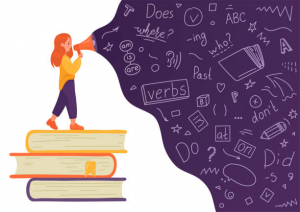
[iStock]
Romeo and Juliet, The Joy Luck Club, Lord of the Flies. These are some of the literature classics taught in school for the GCE O level literature.
In school, our students are taught texts from such classics, then they analyse and interpret the texts. But why do they need to do that? How is it relevant to their futures?
Let’s discuss the benefits and impacts of learning literature on our students’ futures.
More Understanding About Society and Culture

[iStock]
Literature is useful for students because it helps them understand more about society and culture. Many of the books taught cover cultures, societal expectations and current issues.
For example, ‘Games at Twilight’, a story about a boy trying to integrate himself into a group of children talks about coming-of-age and social hierarchies. Another example: ‘The Joy Luck Club’ talks about retaining cultural roots through four Chinese immigrant women and their ‘Americanised’ daughters.
This helps students understand how different societies work which is needed for when they go out into the working world. They will also know how to interact with these societies and various cultures.
Learn Empathy

[iStock]
Empathy is a significant value that we want to instil in our students. It makes them better people and helps them build better social connections with others in the future.
Literature excellently exemplifies how it feels to be in other people’s shoes and allows students to see from different perspectives. For example, ‘The Joy Luck Club’ has separate chapters for different characters’ perspectives.
Analysing the characters and their behaviour helps students understand the characters’ motives and feelings, which teaches them empathy.
Develop Analytical and Critical Thinking Skills

[iStock]
While studying literature, students develop analytical skills. This is because they are required to analyse the characters in the book, their behaviour and their feelings.
By breaking down the scenarios, dialogue, and the characters’ actions, students learn to interpret and make intelligent judgments and decisions based on logical reasoning and reflection based on evidence during their exams.
This is especially true during the exam paper where students choose between an unseen prose or poem and answer questions like ‘identify how the writer feels when writing this poem’.
Increased Proficiency in the Language

[iStock]
Like casual reading, literature also helps students to improve their language proficiency. Students learn new vocabulary words used in the different books (especially in Shakespeare’s works).
Students also need to constantly write essays, so they learn to make their sentences concise and structure their paragraphs properly.
They also learn to present their judgements and arguments coherently. This will come in handy in the future especially if they need to submit reports.
Conclusion

[Depositphotos]
Many of us are quick to undermine the usefulness of literature in the future, especially since many students may think that they are just reading stories and poems.
But there is more to literature and there are many benefits that students can gain from studying it. I hope this article shows you how literature is relevant to students’ futures.
